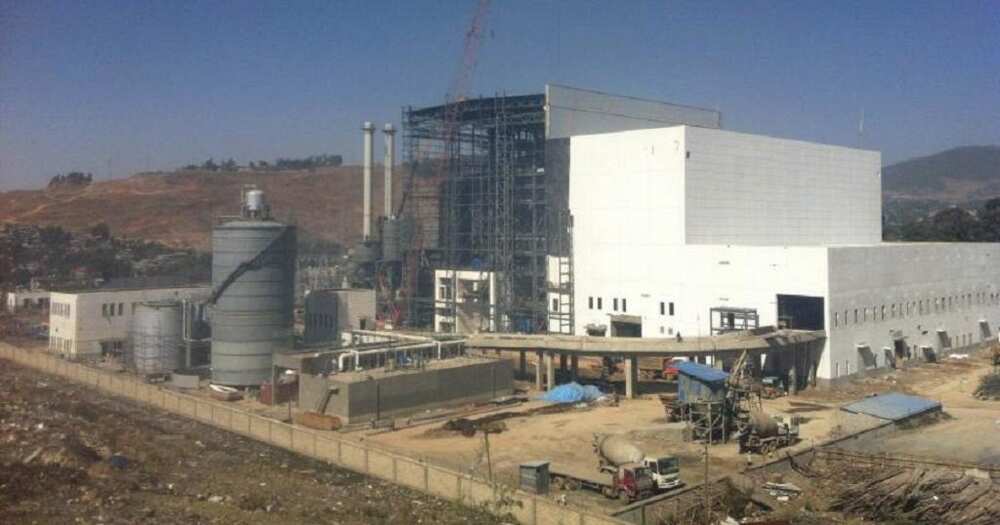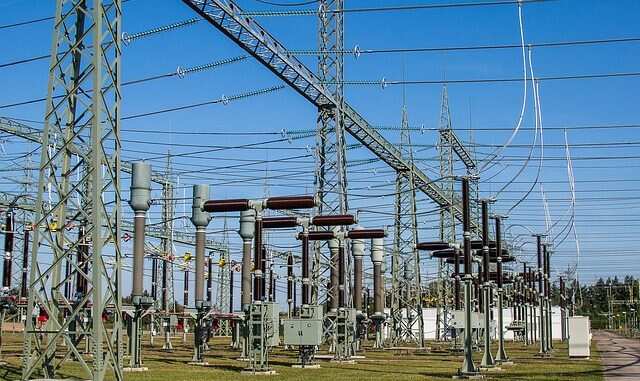Ethiopia builds energy plant that converts trash into electricity
- Ethiopia has reportedly built an energy plant which converts waste to electricity - The country's largest rubbish dump was used as the site for the plant which is built to provide Ethiopians with 30% of their household electricity needs - The project was made possible by the Ethiopian government in partnership with a consortium of international companies As Nigeria battles with electricity problem and waste management challenges particularly in the cities, an African country has unveiled a waste-to-energy initiative worthy of emulation. According to Face 2 Face Africa, the Ethiopian government is turning the country's largest rubbish dump named Koshe in Addis Ababa into a new waste-to-energy plant. The initiative is tagged the Reppie plant project.
The initiative described as the first of its kind in Africa has two major advantages. It will help address the hazards caused by the heaps of waste as well as provide another sustainable means of generating electricity.

Black woman to convert BRT buses into mobile hygiene stations
The energy plant located on the rubbish dump which is said to be the size of 36 football pitches was expected to have started operation in January 2019.

Ethiopia builds energy plant that converts trash into electricity. Photo credit: Africa News Source: UGC
Legit.ng cannot immediately verify whether the plant has commenced operation as the report states.
The plant is expected to incinerate 1,400 tons of waste every day; about 80% of the city’s waste generation.
It is also built to provide Ethiopians with 30% of their household electricity needs.
The project was made possible by the Ethiopian government in partnership with a consortium of international companies.
PAY ATTENTION: Get the Latest Nigerian News Anywhere 24/7. Spend less on the Internet!
In 2016, the Lagos state government announced that it was planning to convert waste from abattoirs into electricity.
Dr. Shakirudeen Olayiwole Onasanya who is the permanent secretary in the Ministry of Agriculture said the state was planning to convert waste from abattoirs into electricity.

Be prepared to pay more for electricity - TCN boss tells Nigerians
He said at a one day workshop on food safety in the Nigerian meat industry in Lagos.
The workshop was organised by the Nigerian Institute of Animal Science (NIAS) in collaboration with the Animal Science Association of Nigeria.
He explained that new abattoirs may have biogas producing facilities which would disseminate cheap and relatively clean energy throughout the facilities.
He said this would also improve waste management at the abattoir.
Onasanya noted that managing waste was difficult but explained that the government is taking steps to improve sanitary control in slaughtering, processing and commercialisation of meat at Oko-Oba Abattoir in Agege to prevent food safety risks.
He said over 6000 cattle, 10,000 sheep and goat are slaughtered daily in Lagos and that there was one approved abattoir, eight approved slaughter slabs and more than 15 illegal slaughtering slabs including slaughtering facilities located within the military barracks.

Nigerian billionaire Femi Otedola shares situation report on Dangote refinery, says it is 75% complete
Legit.ng cannot verify the current status of the project.
NAIJ.com (naija.ng) -> Legit.ng: We have upgraded to serve you better
How leaving Nigeria for Canada for 16yrs changed my life | Legit TV
The initiative described as the first of its kind in Africa has two major advantages. It will help address the hazards caused by the heaps of waste as well as provide another sustainable means of generating electricity.

Black woman to convert BRT buses into mobile hygiene stations
The energy plant located on the rubbish dump which is said to be the size of 36 football pitches was expected to have started operation in January 2019.

Ethiopia builds energy plant that converts trash into electricity. Photo credit: Africa News Source: UGC
Legit.ng cannot immediately verify whether the plant has commenced operation as the report states.
The plant is expected to incinerate 1,400 tons of waste every day; about 80% of the city’s waste generation.
It is also built to provide Ethiopians with 30% of their household electricity needs.
The project was made possible by the Ethiopian government in partnership with a consortium of international companies.
PAY ATTENTION: Get the Latest Nigerian News Anywhere 24/7. Spend less on the Internet!
In 2016, the Lagos state government announced that it was planning to convert waste from abattoirs into electricity.
Dr. Shakirudeen Olayiwole Onasanya who is the permanent secretary in the Ministry of Agriculture said the state was planning to convert waste from abattoirs into electricity.

Be prepared to pay more for electricity - TCN boss tells Nigerians
He said at a one day workshop on food safety in the Nigerian meat industry in Lagos.
The workshop was organised by the Nigerian Institute of Animal Science (NIAS) in collaboration with the Animal Science Association of Nigeria.
He explained that new abattoirs may have biogas producing facilities which would disseminate cheap and relatively clean energy throughout the facilities.
He said this would also improve waste management at the abattoir.
Onasanya noted that managing waste was difficult but explained that the government is taking steps to improve sanitary control in slaughtering, processing and commercialisation of meat at Oko-Oba Abattoir in Agege to prevent food safety risks.
He said over 6000 cattle, 10,000 sheep and goat are slaughtered daily in Lagos and that there was one approved abattoir, eight approved slaughter slabs and more than 15 illegal slaughtering slabs including slaughtering facilities located within the military barracks.

Nigerian billionaire Femi Otedola shares situation report on Dangote refinery, says it is 75% complete
Legit.ng cannot verify the current status of the project.
NAIJ.com (naija.ng) -> Legit.ng: We have upgraded to serve you better
How leaving Nigeria for Canada for 16yrs changed my life | Legit TV


Comments
Post a Comment